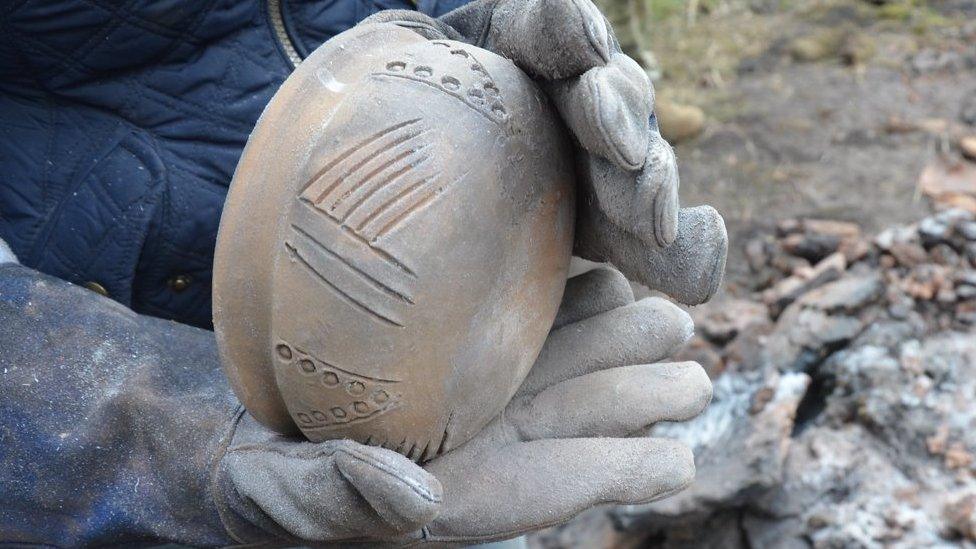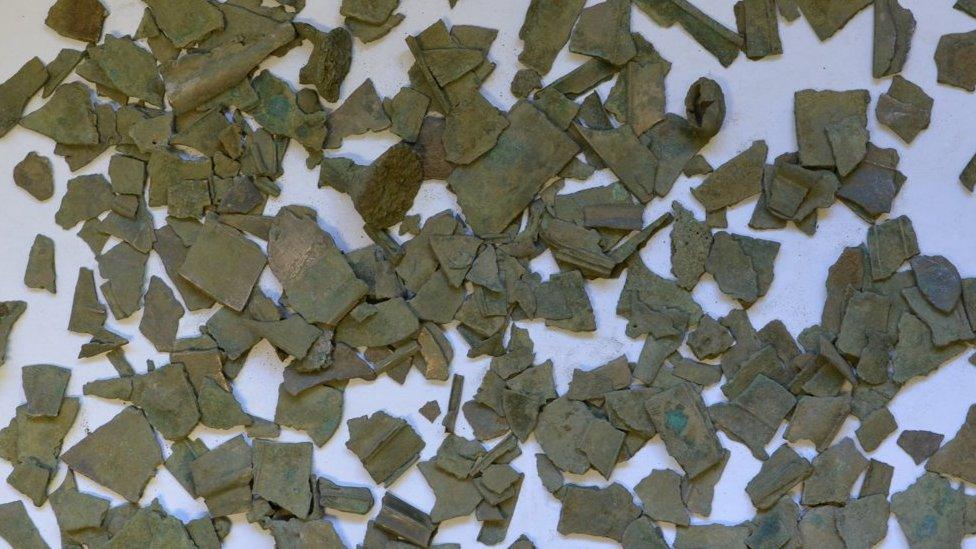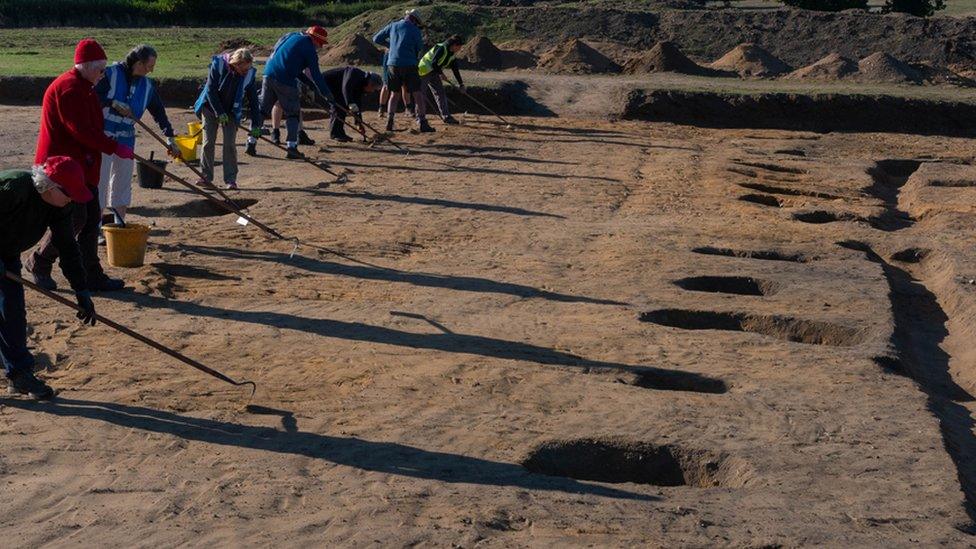Ipswich pottery made 1,300 years ago recreated in replica kiln
- Published

A replica Anglo-Saxon kiln has been used to make pots
Pottery first made about 1,300 years ago in Suffolk has been recreated using a specially-built replica ancient kiln.
Known as "Ipswich ware", items including pots and pitchers were mass-produced in the town from about AD680-870 and found across East Anglia.
The Anglo-Saxon kiln was made after remains of one were found in Ipswich.
Faye Minter, from Suffolk County Council's archaeological unit, said the experiment had given an "invaluable insight into our history".
"These projects are important, allowing us to test archaeological hypotheses by replicating historical methods and techniques based on evidence from excavations," she said.
"The results so far suggest that there was a high level of skill, knowledge and significant resources needed to successfully produce Ipswich ware, much more than we anticipated."

A replica Anglo-Saxon kiln was created to fire the Ipswich ware pottery
The county council's archaeological service worked with volunteers and local organisations to make the replica Ipswich ware pots using historical methods.
Members of the Anglian Potters, external group had been researching Ipswich ware pottery over the past year and conducting experiments with raw clay processing. They also made replica pots with children from Rushmere Hall Primary School.
The replica kiln took three days to build and was fired up in April, with "100 beautiful hand-made pots surviving the process", the council said.
Melanie Vigo di Gallidoro, the council's deputy member for archaeology, said: "It is wonderful to see that the finds from our local excavations and archaeology are bringing together local people, schools and organisations over 1,000 years later.
"Not only is the project providing a better understanding of Suffolk's important past, but is giving the local community a hands-on opportunity to discover more about their heritage, connecting them to the Anglo-Saxon way of life."
A second firing of the kiln is planned later this summer "to test more theories", Ms Minter added.
The Ipswich ware experiment forms part of a community archaeology project called Rendlesham Revealed, external: Anglo-Saxon Life in South-East Suffolk.
It is funded by The National Lottery Heritage Fund, which awarded a grant of £517,300 for the four-year project.

Follow East of England news on Facebook, external, Instagram, external and Twitter, external. Got a story? Email eastofenglandnews@bbc.co.uk or WhatsApp us on 0800 169 1830
Related topics
- Published15 March 2023

- Published28 February 2023

- Published4 October 2022
